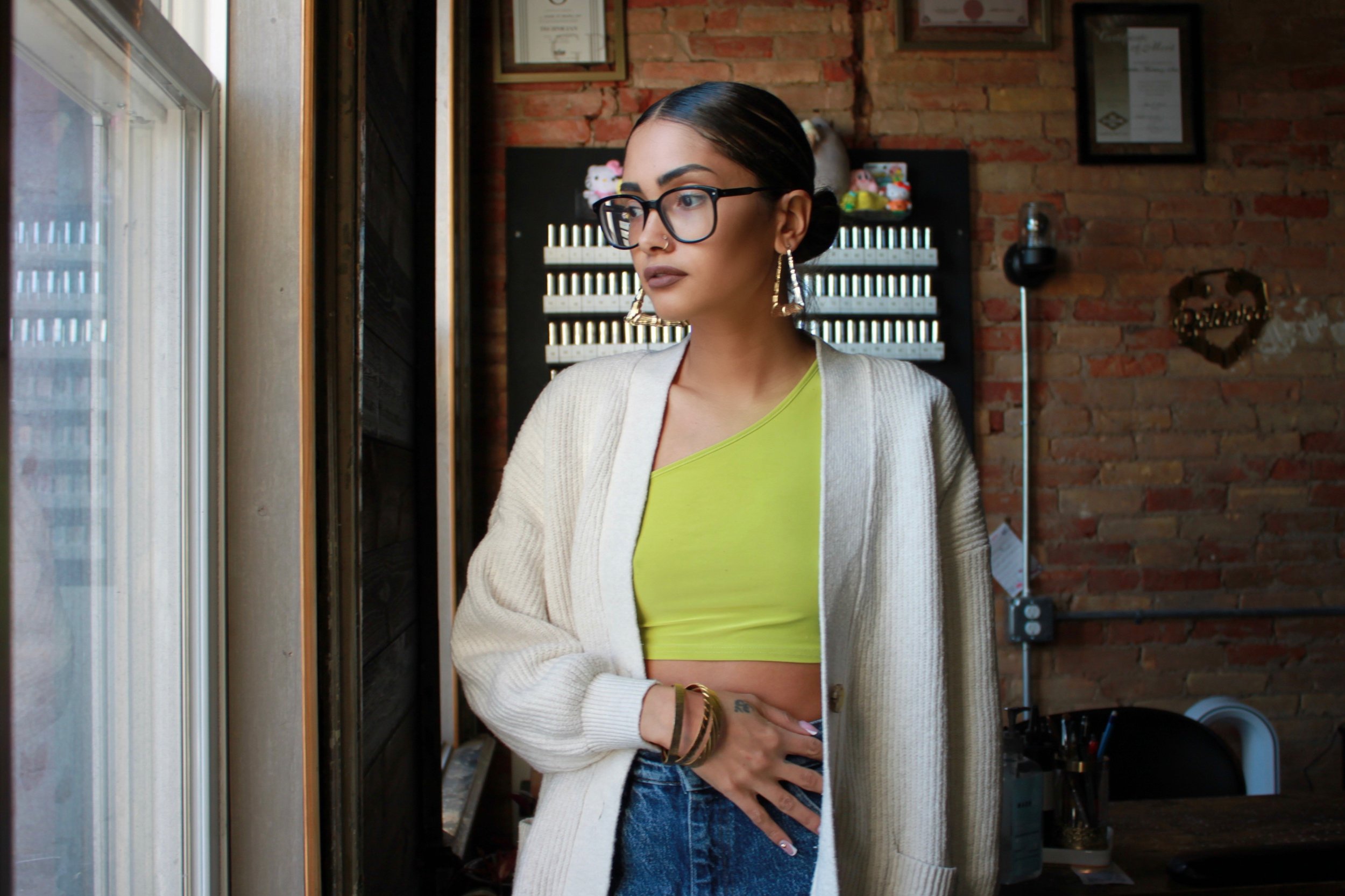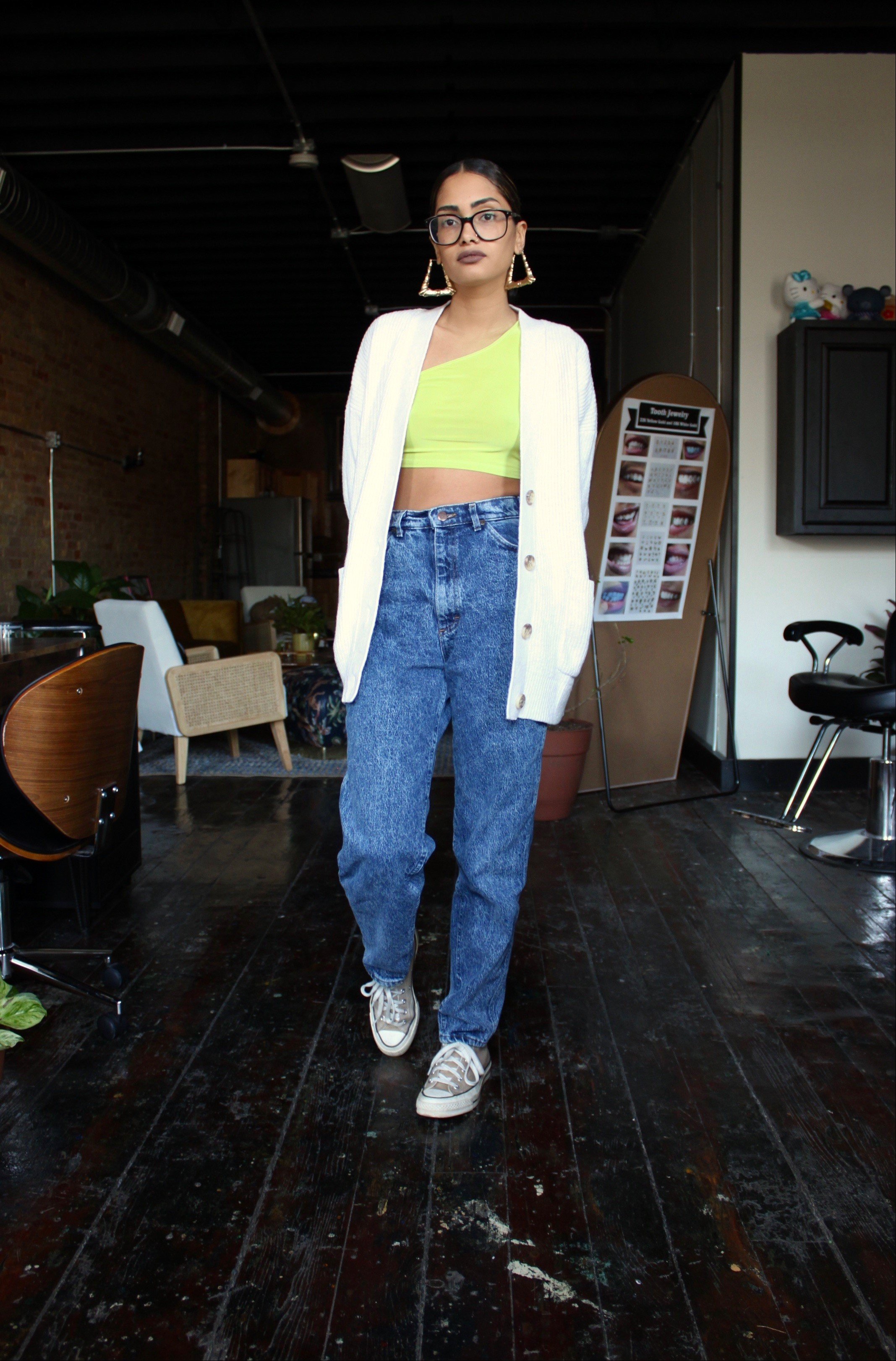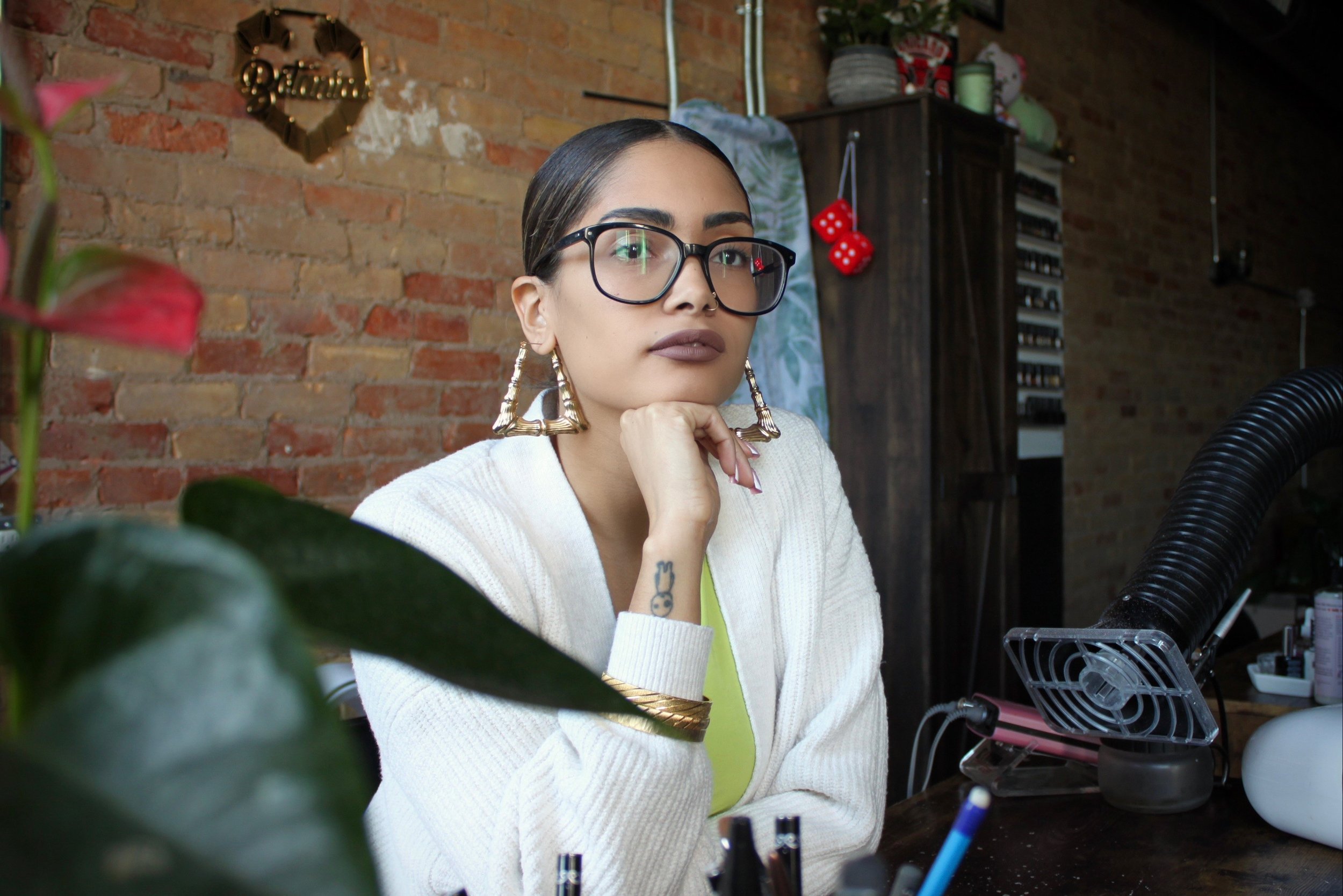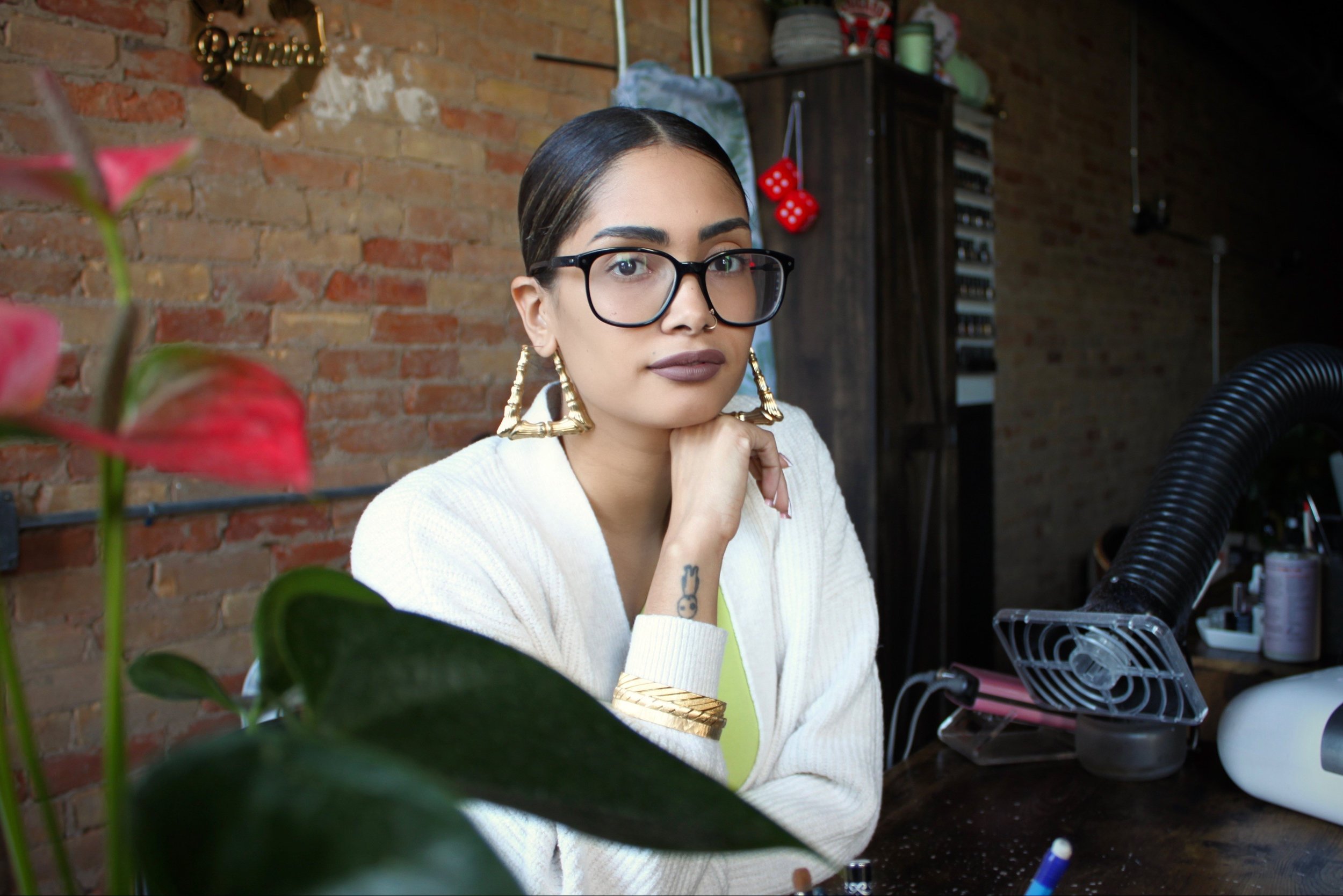Jessieka Martinez-Soto
"I decided that I couldn't continue to be comfortable in the discomfort. It was my home for so many years, and finally I found the discomfort in my misery and I took control."
NAMI: Have you ever had any mental health struggles? What has your experience been?
JMS: Yes! I've struggled with depression and anxiety basically all my life, and just recently discovered that I have ADHD. I've been diagnosed multiple times with depression/anxiety, and as far as ADHD goes, I came to this discovery when I was seeking help for my son. As I was researching, it went on to discuss ADHD in women, and I literally hit every single bullet point. So much started to make sense for me. I'm still hella embarrassed to talk to my family or a doctor about it because, well, family … I know they'll judge me. And I feel like I haven't found a doctor that listens to me or takes any of my concerns seriously.
Depression hit me hard when I was a teenager, and the first time was probably one of the lowest times of my life. I thought about suicide every. Single. Day. I was a professional dancer back then, and it took me from it. And as I grew a bit older, I basically would numb myself by partying instead of addressing anything – until eventually I got pregnant, and, oh boy, did that hit me like a ton of bricks. I was in an abusive relationship and had nowhere to go. I cried every day, and after I had my son, I had this flashback of my life – everything I went through and my son and what that would mean for him. I decided that I couldn't continue to be comfortable in the discomfort. It was my home for so many years, and finally I found the discomfort in my misery and I took control. I thank my spirituality and my strong sense of self for that. IFA (an African nature based religion) brought me back home and continues to guide me when I feel lost in this energetic field.
NAMI: How have you healed and grown from your experiences?
JMS: Every now and then, depression comes back, but one thing that has helped me is being out in nature and practicing grounding, writing on my spiritual IG, going to the gym, and sticking close to my spiritual practice. I would like to say that I’m thriving at this point, and my self awareness has helped so much to know what it is that I need when things start getting gray. As far as my anxiety/ADHD and sensory overload, remembering things and staying organized is something I continue to push through every day, and being a mom of two – it can be hard sometimes. But I swear my kids might bring out the worst in me at times, but they also bring out the best. They push me to be the best me. They are my teachers.
NAMI: You were recently featured on @explorerochester where you discussed moving to Rochester from Puerto Rico just shy of your 3rd birthday. You wrote about growing up in the projects. Do you feel like that experience had an impact on your mental health?
JMS: I didn't live in the projects for long, but the time I was there, I was so oblivious to people’s struggles for the most part. I mean, I was just a kid. When I started becoming more aware, it was the domestic abuse I witnessed in my own home that would have had the biggest negative impact. As far as the people and memories I made, it definitely showed me that no matter where you are in life, we are all just people having our own struggles, living our own realities, and learning lessons.
NAMI: In your experience, how is mental health (i.e. mental illness, addiction, suicide) viewed and treated in Puerto Rican culture? Is it talked about? What forms of mental health-related stigma have you observed or run into personally? How do you combat stigma?
JMS: Aw man. Honestly, mental health isn't talked about enough. I am still very nervous to talk about my struggles personally within my community – especially with ADHD – because people think it's just something you can switch on or off; that you’re just "lazy.” I really hate that word. They might label you "loca" or see you as weak. I think as our community starts to grow more [in terms of] awareness, some of the older generation is starting to get it, but more importantly the newer generation most definitely does and we are seeking real help. Medically or holistically. Which is why I believe in being more open and talking about it. I want people to see that mental health does not discriminate. Doing this interview and writing on my IG has been my way to fight the stigma.
NAMI: Do you feel like culturally competent mental health support is available and affordable in the Rochester community? If so, what resources would you recommend?
JMS: I don't, honestly – unless I haven't come across [them]. If you have state insurance, good luck trying to get services that are actually doing something for you or your children. Places that usually take those types of insurance are always running through therapists/providers, and it sucks when you have to meet a new person all over again. So far, the best services I've received are the ones that I had to pay out-of-pocket for, and I've been very fortunate to be able to afford those services. I hope that one day in the future, such services will be accessible to everyone.
As a small business owner of Botanica Nail Studio, how do you prioritize the mental health of your staff? How do you lead by example?
JMS: Letting them be the boss of their work lives. I'm not trying to be a micromanager, and I know from my days of working for other people, micromanaging was mentally not good for me. It would always lead to me quitting and jumping from job to job, because I would get so overwhelmed and I would leave. I would also let my mind get the best of me, and I would become super negative about my life in general when things weren't the way I wanted them to be. The work model that I have created allows for each nail artist to be independent and give them the cushion to build that for themselves if they haven't established that already. I want them to have a safe place where they can prioritize their family life, prioritize their mental health, and still be able to provide for themselves. I am here to support them at every single step, and I am huge on communication. I am here to support them and I let it be known. I will speak life into you, if you let me. I will honor your boundaries, and I will always help them to create a balanced life wherever possible.
NAMI: How do you protect your mental health? What forms of self-care do you practice? What keeps you balanced?
JMS: Alone time; isolation is good for me. It's what I need when I’ve got too much stuff going on in my head and I can't think. Writing helps a ton too. I love writing about the energetic conclusions I come to – you know, the things that you understand in your body, energetically, that you just can't put into words sometimes. Deciphering that into words is a mind pleaser for me. Being out in nature, putting my feet in the grass, staring up in the sky, and just breathing helps me connect and remain grounded. It helps me feel like I am part of a bigger plan; that my struggles are meant to mold me into the person I am supposed to be, and that I came here to not let them defeat me but to befriend them and rise above it – even if it's only one day at a time. Self-awareness, music, and my spirituality keeps me balanced. I can really lose myself singing – words can't even begin to express (iykyk 🤎🙏🏽). Singing helps me find a home within myself that is one of the most comfortable things I’ve found within me. I've been very fortunate to be a part of two bands as their lead singer, Grupo Ife (we'll be at Jazz Fest this year 🙌🏽) and Grupo Calle Uno. I found solace within these two bands, and I hope that one day I can share the therapy of music with my children and anyone else who's willing to listen.




